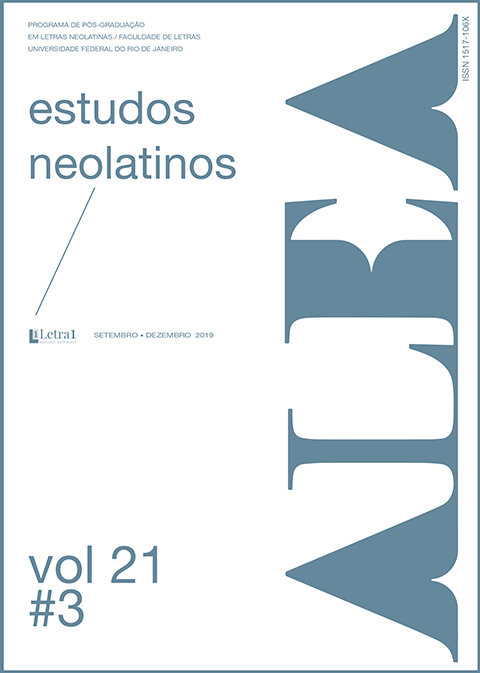Facebookland: the bizarro-linguistic world
Resumen
This article investigates the dynamics of contemporary Romanian, focusing on various linguistic structures typically used on social network sites, through which the specific content and interaction strategies are being deployed in virtual communities. The article is part of a larger project devoted to the study of linguistic impoverishment (affecting both the vocabulary and the grammatical structure of the language), social networks being only one of the areas where these “uglified” linguistic structures come from: the mass-media (both print and broadcast), advertising (outdoor, indoor, television commercials), Internet forums, corporate jargon, etc. The structures under scrutiny are mostly loan translations (i.e. calques) from English, false friends, hybrid constructions and, generally, lexical and grammatical oddities (sometimes even in the source language), which, nevertheless, due to frequent use, have entered the active vocabulary of a large category of speakers and are therefore becoming pervasive in everyday conversation. The proliferation of these ‘mongrel’ structures in common parlance is also the result of their migration, on the principle of communicating vessels, to other areas of interpersonal and public communication, that of advertising in particular. Moreover, their oddity and inappropriateness are now beginning to pass unnoticed, as more and more speakers are treating them as legitimate linguistic forms, which often end up being recorded in dictionaries. Our approach combines theoretical insights with practical solutions and the pragma-linguistic perspective with the translator’s corrective input.Citas
BĂLĂNESCU, Olga. TEXTE şi pre- TEXTE (Introducere în pragmatică), Bucureşti: Editura Ariadna ’98, 2001.
BARON, Naomi S. Always On: Language in an Online and Mobile World. Oxford: Oxford University Press, 2008.
COŞERIU, Eugen. Sincronie, diacronie şi istorie, Bucureşti: Editura Enciclopedică, 1997.
CRYSTAL, David. Language and the Internet. Cambridge: Cambridge University Press, 2001.
DICŢIONARUL explicativ al limbii române. 2nd. ed., rev., Bucureşti: Univers Enciclopedic Gold, 2016.
IORDAN, Iorgu; ROBU, Vladimir. Limba română contemporană, Bucureşti: Editura Didactică şi Pedagogică, 1978.
LENIHAN, Aoife. “Join Our Community of Translators: Language Ideologies and/ in Facebook”. In: THURLOW, Crispin; MROCZEK, Kathrine (eds.) Digital Discourse: Language in the New Media. Oxford: Oxford University Press, 2011, p. 48-61
MOESCHLER, Jacques, Reboul, Anne, Dicţionar encyclopedic de pragmatică, traducere şi prefaţă; Carmen Vlad şi Liana Pop. Cluj-Napoca: Echinox, 1999.
PLEŞU, Andrei. Limba păsărilor. Note pe marginea unui dialog platonician. Secolul v. XX, nr 1-2-3, p. 325-327, 1988.
SIMION, Eugen. “Prefaţa”. Dictionar Ortografic, Ortoepic si Morfologic al Limbii Romane, Editura Univers Enciclopedic, Bucureşti, 2007, p. i-xi
STANCU, Iulia, Diferit nu înseamnă inovator. Forbes România, June 11, 2014, accessed April 21, 2019.
ŞĂINEANU, Lazăr. Semasiologia limbii române. Timişoara: Editura de Vest, 1999.
ZAFIU, Rodica. Noua limbă a românilor. Lingvista Rodica Zafiu explică, la Interviurile Gândul, cum am ajuns să vorbim şi să înjurăm “ROMGLISH”. Gândul, March 1, 2015, accessed April 22, 2019.
Descargas
Publicado
Número
Sección
Licencia
EL/LOS/LA/S AUTOR/ES/AS confirma/n su participación en todas las etapas de elaboración del trabajo: 1) Concepción, proyecto, investigación bibliográfica, análisis e interpretación de los datos; 2) Redacción y revisión de los manuscritos; 3) Aprobación de la versión final del manuscrito para publicación; 4) Responsabilidad por todos los aspectos del trabajo y garantía de exactitud e integridad de cualquier parte de la obra. El envío de los trabajos implica la cesión inmediata y sin costo, por parte de todos os autores, de los derechos de publicación para la revista Alea, la cual estáafiliada al sistema CreativeCommons, atribución CC-BY (https://creativecommons.org/licenses/by/4.0/). EL/LOS/LA/S AUTOR/ES/AS es/son integralmente responsable/s por el contenido del artículo y continua/n reteniendo todos los derechos autorales para publicaciones posteriores del mismo, debiendo, si es posible, dejar constancia en las referencias a la primera publicación en la revista. Alea no se compromete a devolver las contribuciones recibidas. EL/LOS/LA/S AUTOR/ES/AS de artículos, reseñas o traducciones recibirán un ejemplar de la revista.

